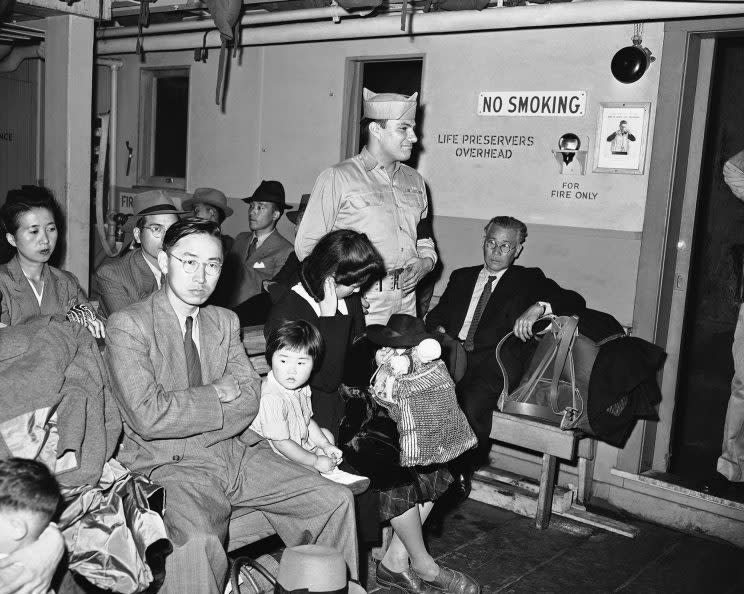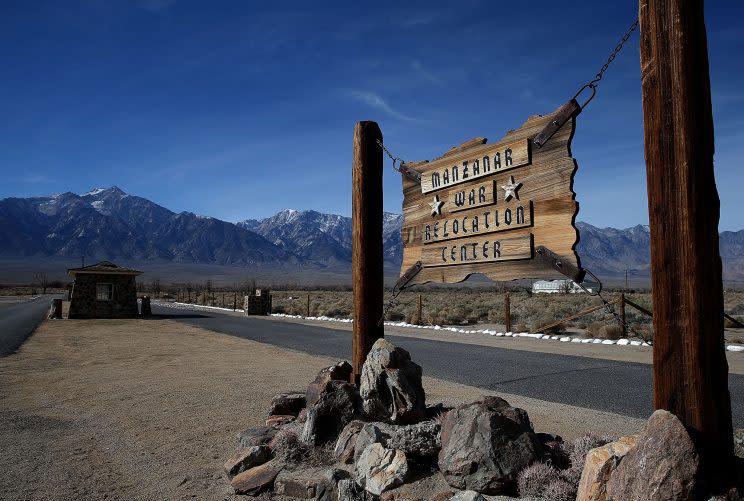L.A. Times: We regret publishing pro-Japanese internment letters

The leadership of the Los Angeles Times said two letters to the editor that the paper published on the internment of Japanese-Americans during World War II should never have been published and did not meet their standards of “civil, fact-based discourse.”
Deirdre Edgar, who is the paper’s “readers’ representative,” explained Monday that many readers took issue with the letters that appeared in the travel section on Dec. 11.
“The letters employed cultural stereotypes to suggest that the mass internment of Japanese Americans during World War II was justified, and sought to minimize the hardships they endured,” Edgar wrote in an article posted Monday.
The controversial letters were written in response to a Nov. 27 article about the Tule Lake and Manzanar relocation camps in California, where thousands of Japanese-Americans were detained. The majority were U.S. citizens.
Times staff writer Carolina A. Miranda’s story, titled “Our national parks can also be reminders of America’s history of race and civil rights,” depicts the National Park Service as dedicated to preserving the full American story — not just the feel-good moments.
Davan Maharaj, the Times’ editor in chief, addressed the letters in the daily news meeting Monday morning and in letters distributed to staff, according to Edgar.

“Letters in The Times are the opinions of the writers, and editors strive to include a range of voices. But the goal is to present readers with civil, intelligent, fact-based opinions that enlarge their understanding of the world,” Maharaj said, Edgar reported. “These letters did not meet that standard.”
In 1988, President Reagan signed the Civil Liberties Act officially apologizing to the internees and establishing a trust to pay reparations. And though the U.S. government acknowledges the forced internment as a dark chapter in the nation’s history, Times’ readers Steve Hawes and Dick Venn accused Miranda of rewriting American history and lacking balance. Their letters contained various passages that the Times denounced for promoting racial stereotypes and minimizing the overall injustice and horror of internment. Hawes wrote:
“Japanese have an extremely strong attachment to family, and even more so back then. First- generation and, to a lesser extent, Japanese here would have been expected to follow the wishes of their elders in Japan.
“… Virtually everyone in the U.S. was assigned jobs to help the war effort. The Japanese were assigned the job of staying out of the way and not causing complications. Millions of Americans were assigned far worse jobs.
“The interned Japanese were housed, fed, protected and cared for. Many who now complain would not even be alive if the internment had not been done.”
The Times denounced the letters for containing racial stereotypes and minimizing the injustice and horror of internment.
Slideshow: World War II Japanese internment camps in the U.S. >>>
Catharine Hamm, the editor of the Times’ travel section, said she approved the publication of the provocative letters because she thought subsequent responses would provide balance, but that this was a mistake. In retrospect, she said, the letters did not lend themselves to “reasoned discussion.”
Some of the Times’ readers sharply criticized the newspaper for publishing the letters.
Karin Wang of Los Angeles accused the Times of contributing to the normalization of the so-called alt-right and white supremacists by publishing letters that argue Japanese-Americans should have been grateful that the U.S. government imprisoned them without due process.
Another reader, Matthieu Boblet of Washington state, wrote that framing the internment as the Japanese-Americans’ “contribution to the war effort” is “frankly, disgusting.”
“Many lost their homes, livelihoods, ways of life and childhoods as they spent years locked away, forced to live in rickety shacks out in the desert due to knee-jerk reactionary xenophobia,” he wrote. “Framing it as anything different is a disgrace and outright falsehood.”




